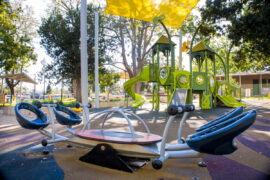Welcome to the Journey: Understanding the Driving Age in New Zealand
Hello, awesome Kiwi parents! Are you bracing yourself for the moment your teen can legally take the wheel? Buckle up, because you’re about to embark on an informative ride through the driving age in New Zealand, and how to steer your young one towards driving success! With this cheerful guide, you’ll be cruising through the basics and beyond without any bumps in the road.
First Milestone: The Legal Driving Age in NZ
Let’s start with the basics—the legal driving age in New Zealand is 16 years old. That’s right! Once your teen blows out their 16th birthday candles, they can kick-start their engine towards independence. But before they vroom off, there’s a process to ensure they’re safe and sound on the road.
Learner’s License: At 16, your teen can apply for their Learner’s License through the NZ Transport Agency. It’s the first of three stages under the Graduated Driver Licensing System (GDLS), a proven method to help drivers gain skills and experience safely over time.
Getting a Learner’s License: The Road Map to Success
A Learner’s License is your teen’s ticket to learning how to drive on New Zealand roads, but it’s not just handed over; they’ve got to earn it! Here’s how:
- Studying Up: First, they need to master the Road Code. It’s chock-full of traffic laws, road signs, and essential driving knowledge they’ll need not just to pass the test but also to be safe and savvy motorists.
- The Theory Test: Once they’ve studied, they’ll take a theory test to showcase their road smarts. It’s a computer-based quiz, and passing it proves they’ve got the knowledge to progress.
- Eye Check and Application: A quick eye check ensures they can see all the adventures ahead clearly, and with a few forms filled out, their application is set!
Supervised Driving: A Bonding Experience
Once your teen has their Learner’s License, they’re not flying solo just yet. They must drive under supervision. This means having a fully licensed driver (that’s you or another adult who’s held a full license for at least two years) riding shotgun. Think of this as golden time—a chance for you to bond with your teen and pass on your wisdom of the roads.
During this period, your teen is learning valuable driving skills, building confidence, and getting comfortable with various driving conditions under your watchful eye. Remember, patience and encouragement go a long way in making them feel supported!
Gearing Up: Learning to Drive Safely
Safety is the name of the game when it comes to teaching your teen to drive. Get ready to start your engines on a positive note with these pro tips:
- Choose a Quiet Area: Begin practicing in a quiet and safe area, away from heavy traffic and complex road situations. This allows your teen to focus on the basics of car control without the added stress of busy streets.
- Progress Gradually: As they gain confidence, gradually move on to different types of roads and driving conditions. Introduce new challenges at a pace that suits their comfort and skill level.
- Create a Calm Environment: Keep the atmosphere inside the car as calm and positive as possible. Encouragement will help build their confidence and create a more enjoyable learning experience for both of you.
It’s important to remember that each teen is unique and will learn at their own pace. Some might grab the wheel with gusto, while others may need a bit more coaxing. Either way, your role as the co-pilot through this exciting, yet sometimes nerve-wracking, journey is invaluable.
Zooming through these formative driving experiences with your teen can be incredibly rewarding. Not only are you guiding them toward newfound freedom and responsibility, but you’re also helping them navigate one of life’s significant milestones. So, let’s gear up, hit the road, and drive into this adventure together! Stay tuned for more in-depth information on how to support your teen through each licensing stage and how to gear up for this exciting chapter!

5 Essential Things Parents Should Know in Preparing for the Driving Age in NZ
- Understand the GDLS: Familiarize yourself with the Graduated Driver Licensing System in New Zealand, its different stages (Learner, Restricted, Full) and the specific rules that apply to each one. Understanding the pathway will help guide your teen effectively.
- Practice Time is Key: The more practice, the better. Your teen is required to log a certain number of driving hours before advancing to the next stage. Make the most of this time for hands-on learning.
- Emphasize Defensive Driving: Teach your teen the importance of defensive driving from day one. It’s not just about following the rules but also being aware of other drivers and anticipating potential hazards.
- Be a Role Model: Remember, your teen is watching your driving habits closely. Always exhibit safe and courteous driving behaviors for them to mirror.
- Stay Informed on Driver Safety Issues: Keep up-to-date with the latest in driver safety, including changes to traffic laws, safety campaigns, and available resources for learner drivers.
The Restricted License: Next Steps on the Path to Independence
After your teen has mastered the basics and logged sufficient practice hours, they can then aim for the Restricted License. This second phase of the GDLS allows them to drive solo, but with certain restrictions. The test for this license will assess whether they can drive safely without supervision. Preparing for this test involves refining their driving skills and preparing for a range of driving scenarios.
Fostering Responsibility and Safe Driving Habits
Driving is a privilege that comes with great responsibility. Use this learning period to instill good driving habits in your teen that will last a lifetime. Talk to them about the serious consequences of distracted driving, the importance of not driving under the influence, and the need to respect speed limits and other road users.
Make Learning to Drive a Team Effort
Remember, teaching your teen to drive doesn’t have to be a solo mission. Seek out professional driving lessons to complement your teaching. In New Zealand, there are numerous qualified driving instructors who can provide valuable expertise and help reinforce good driving practices.
Plan for the Costs
It’s wise to start budgeting early for the costs associated with learning to drive. These include the learner license application fee, theory test fee, driving lesson fees, and the restricted and full license application and test fees. Additionally, consider the cost of vehicle maintenance and insurance when your teen starts driving independently.
Parting Thoughts on Navigating the Driving Age in NZ
As your teen moves through the GDLS, celebrate each milestone and offer constructive feedback. Remember, your support is crucial in shaping a confident, capable, and safe driver. Ready your teen for the road ahead not just with the know-how to maneuver a vehicle, but with the wisdom to handle all of life’s routes with care.
Driving is a big step for your teen and you, but with patience, support, and the right guidance, it can be a smooth and joyous ride. Keep fostering those road-savvy skills, and before you know it, your teen will be cruising into adulthood with confidence. Let’s make every driving lesson a building block to their future—a journey they will navigate with pride and safety in mind. Fasten those seat belts, we’re in for an incredible drive!
See more great Things to Do with Kids in New Zealand here. For more information see here
Disclaimer
The articles available via our website provide general information only and we strongly urge readers to exercise caution and conduct their own thorough research and fact-checking. The information presented should not be taken as absolute truth, and, to the maximum extent permitted by law, we will not be held liable for any inaccuracies or errors in the content. It is essential for individuals to independently verify and validate the information before making any decisions or taking any actions based on the articles.




